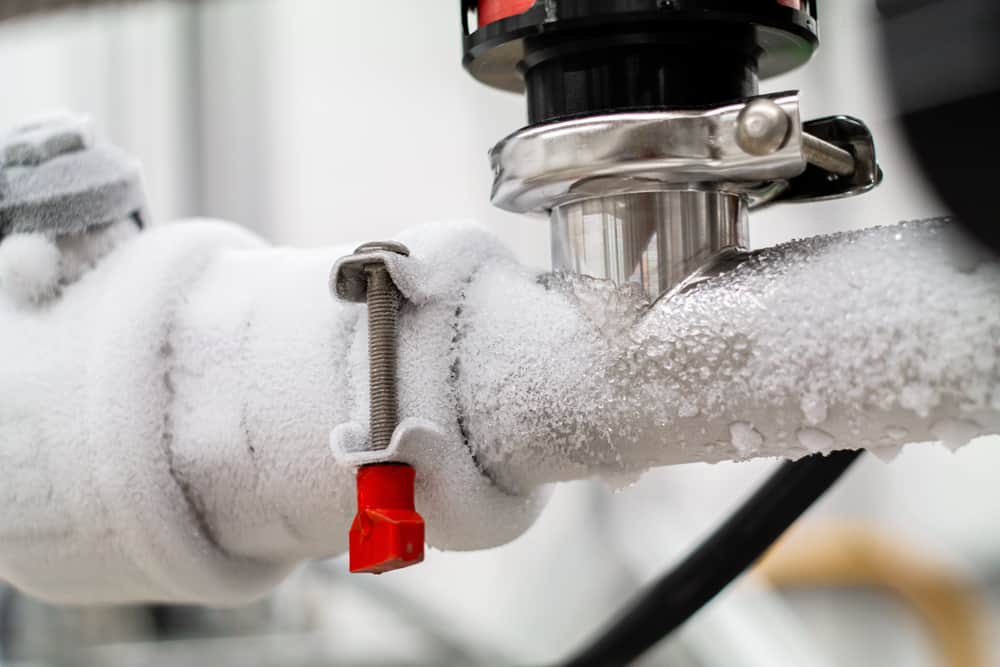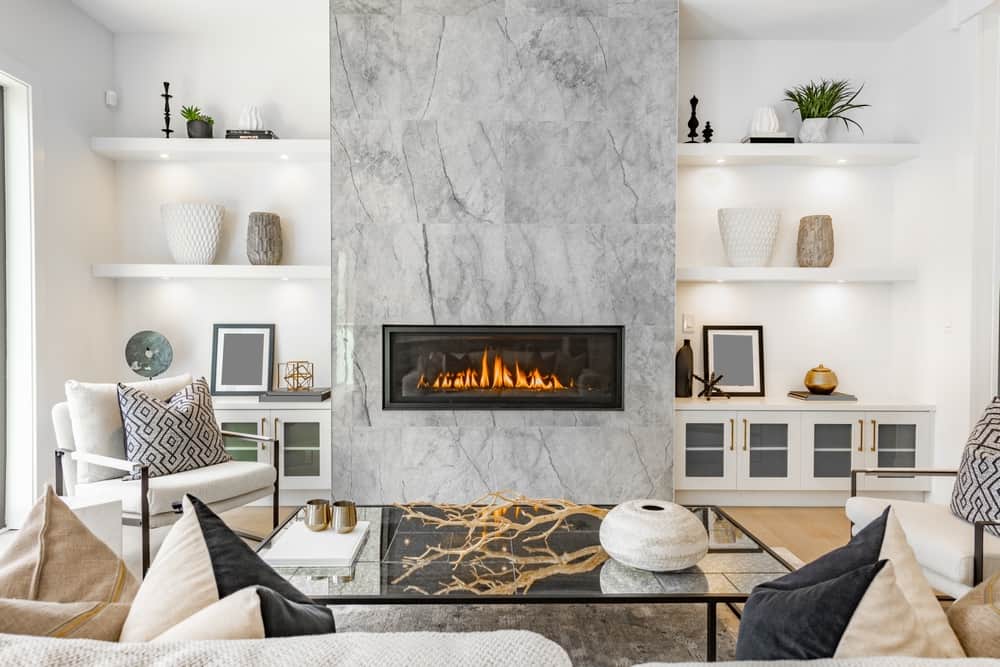After a long day at work, you’re looking forward to an evening at home with your family. But before you can settle in, strange banging noises emanate from within your walls.
These sounds could be coming from an unexpected source: water pressure. Fortunately, this is a fairly common issue and easily fixed.
Variations in Water Pressure
A knocking sound that reverberates around your home could be indicative of fluctuating water pressure. This issue could wreak havoc on your entire plumbing system and potentially result in costly damage to your property.
Water pressure can vary between homes due to various factors, including time of day. This is especially prevalent early in the morning and on warm summer evenings when people are watering their gardens.
Your water pressure may be low due to inadequate insulation in the pipes. This could cause your hot and cold water temperatures to fluctuate unevenly or become icy-cold almost instantly – both of which could indicate a serious issue.
In some cases, it could also be indicative of air leaks or trapped air in the pipes. These issues should be addressed promptly by a qualified plumber.
Air leaks into pipes can cause them to shake violently, often leading to knocking noises. While replacing the pipes may be necessary in some cases, most often the noise will disappear once all air has been drained and refilled.
Another potential cause for your pipes’ knocking could be rubbing against the walls or other materials in your home. This can happen with CPVC pipes that have been in place for some time and need to be repositioned in order to allow water flow.
Sometimes, knocking sounds in your main supply lines may be due to high water pressure. While pressure keeps water flowing freely from the main pipe to faucets and fixtures, when it becomes too much for the pipes to bear, they start vibrating and making a humming or rattling noise as they travel along its length.
That is why it’s essential to regularly have your water pressure tested and, if necessary, corrected by a qualified plumber. Doing this can prevent costly issues like burst pipes, leaks, damaged appliances and fixtures, among others.
Air Leaks
Sometimes, your pipes may make an unusual knocking sound. This could be indicative of an air leak which not only causes discomfort but may also pose serious health risks.
There are several ways to determine if there is an air leak in your home, some of which you can do yourself. These methods include visual inspection, building pressurization test and blower door test. If you feel confident enough with these tests, however, hiring a professional is always an option.
First, search for drafts and cold spots. Doing this will help identify areas that require attention. The most common place to start is around doors and windows; however, other parts of your home may have more serious issues.
Check for leaks in your attic and basement, which are often difficult to spot. Leaks in these areas can cause your heating and cooling system to use more energy than necessary, which could prove expensive to fix.
Another potential cause is trapped air in your water line. This can occur when a faucet or valve is turned off abruptly, or there are changes to water pressure or flow.
You can tell if air has been trapped in your water line by listening for banging noises when turning on faucets or flushing toilets. Also, listen for noises immediately after turning off water to check for any remaining air bubbles.
Copper pipes in your home tend to expand and bang together when water passes through them, especially if they’re located in tight places. To prevent this issue from arising, place padding or foam insulation at each end where the pipe exits a wall.
Air leaks in homes typically originate through walls and ceilings, so if you can hear knocking noises coming from these parts of your house, then it’s time to address the problem.
In many cases, the easiest way to detect an air leak is simply lighting an incense stick and moving it around potential leak sites. If the smoke appears either blown out or drawn into the room, you’ll know there’s a problem somewhere. You can also use damp hands to feel any drafts present. If you can’t pinpoint where the source of your leak, consulting with an expert for more accurate assessment may be beneficial.
Loose or Damaged Pipes
If you hear a loud knocking sound when water is turned on or off, it could indicate that your pipes require repair. Additionally, this could be indicative of how old your plumbing system is becoming; this could lead to various issues such as leaks and corrosion.
Fortunately, there are easy and inexpensive solutions to this problem. Start by checking your water pressure to determine whether it’s too high or low. If the cold water pressure is over 80 psi, install a pressure reducing valve; if the hot water pressure is excessively high, turn down the temperature and consider installing a hot water expansion tank to help regulate pressure levels.
Another common cause of knocking pipes is when sediment builds up in your water heater. This can result in a banging sound and usually requires simple remediation to resolve.
Additionally, your pipes can shake and make a knocking sound when exposed to temperature changes in your home’s water supply. This could occur during extreme temperature shifts like winter or summer seasons when temperatures fluctuate significantly.
You can often stop banging noises by painting over old rust spots on your internal pipework. Additionally, tighten or replace loose valves and elbow fittings to eliminate clicking noises.
Finally, you can turn off the water and drain out any extra water in your plumbing to eliminate banging sounds caused by water hammer.
Finally, if you’ve not heard any unusual noises, it could be time for a plumber to inspect your home’s pipes. This is an essential step in guaranteeing that your plumbing system functions optimally and helps save money by avoiding future repair expenses.
Unstable Faucets or Fixtures
If your pipes are making a noise, one of the first steps you should take is inspect the fixtures and faucets responsible for them. Doing this will help identify and fix the source of your issue quickly and efficiently.
Pipes often knock due to being unstable. This could be the result of pipes becoming loose over time or due to worn out fixtures that weren’t installed correctly.
This is a fairly common issue, and it can occur with many types of fixtures and faucets. To determine if this applies to you, inspect the fixture to make sure that it’s secure. If so, try tightening its bolts or replace with new one.
Another potential cause of pipes knocking could be water hammer, a condition common in older homes that should not go ignored. If not addressed promptly, water hammer can lead to serious injury or destruction.
Common causes of leaky faucets or showers include uneven water pressure, air buildup inside pipes and air accumulation.
Knocking sounds can be annoying, but they usually don’t cause damage to your plumbing if addressed promptly. If you find that you have multiple such problems, it may be wise to contact a plumber for assistance.
The most efficient solution to dealing with knocking pipes is tightening or installing straps that will hold them in place. This will reduce noise, but be careful not to anchor them too securely that they cannot expand and contract due to temperature changes.
If your pipes are within walls, you may be able to eliminate this sound by stuffing padding or foam insulation at both ends where the pipe enters and exits the wall. Additionally, check for any loose elbows or valves that could be contributing to the issue.


